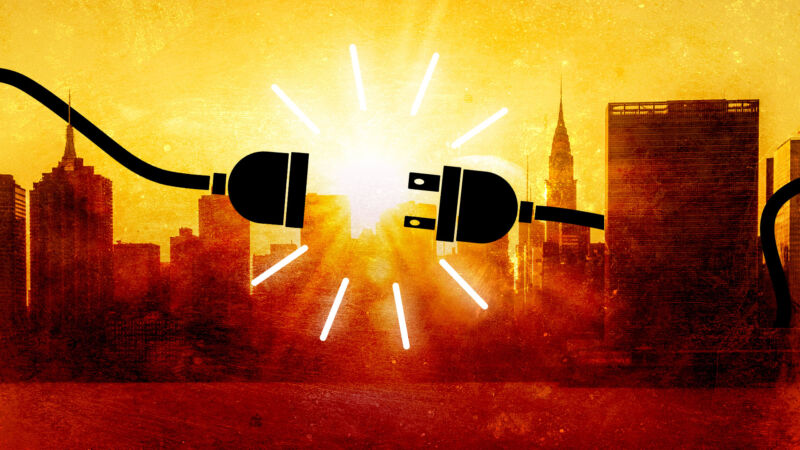
On May 22, 2022, I began an experiment. I unplugged everything in my apartment, with the goal of drawing zero power from the electric grid for one month. I had no idea how I would make it past a few days.
Nevertheless, I opened the main circuit, disconnecting my apartment from the grid and committing myself to solving what problems arose as they came. As I type these words in January, I’m in my eighth month. My Con-Ed bills continue to show zero kilowatt-hours.
Ars Technica readers undoubtedly want to know about my equipment. We’ll get there, but first let me share my history, motivation, and constraints.
Why would I do this?
Today, more than half the world lives in cities. I've always thought that living "off the grid" meant living "off in the woods," where you can live simply and set up an alternate power source. But I’m a professional in Manhattan and need to earn a living. I have to meet the expectations of professional service from my clients and from New York University, where I teach leadership and entrepreneurship. Before this experiment, I didn’t believe my lifestyle would let me disconnect from the grid for a day, let alone longer.
But that sort of thinking was in tension with my work. Over the years, I have helped leaders in business, politics, and other fields learn to lead on sustainability. These leaders can then change their organizations’ and constituencies’ cultures and practices to embrace sustainability. Even though corporate and policy choices matter more than those of any individual, I was still curious to see if I could make my own practices more sustainable. Personal responsibility matters to me, so polluting less motivates me; it's a small thing, but one I can control, even if it's important to make policy and political changes, too.
And I wanted to see how easy (or difficult) this might be for other city dwellers—both to help with sustainability and with utility bills. The Wright brothers didn’t need to make a 747 or a global network of airports to show that controlled powered flight had potential. Showing success once created the mindset shift that led to a process of continual improvement among innovators, who did the rest. So who knows? Perhaps my story will inspire a few innovators (maybe even you!).
In addition to the obvious benefits that reduced power consumption brings, there’s also the issue of grid resilience. If everyone could stand a few days without grid power, we could build grids that aren't made for 99.9 percent uptime but for 95 percent or lower uptime (with dedicated power for essential services like hospitals, police, and subways). At some level of local resilience, we could power cities exclusively with solar and wind despite their intermittency, with much lower battery needs.
Unplugging gradually
I started my personal sustainability drive almost accidentally, when I challenged myself to avoid packaged food for a week. I expected deprivation and sacrifice from avoiding Manhattan’s abundant food options. If I’m honest, part of me hoped to find the challenge untenable so I could say the cure was worse than the disease and give up.
But constraints breed creativity. I learned to cook from scratch, which led to more of what I valued in food: flavor, variety, convenience, nutrition, and socializing, while lowering costs and pollution.
The unexpectedly rewarding results motivated me to keep going. I avoided flying for a year and experimented with unplugging my fridge. By May 2022, when I decided to disconnect completely, I hadn’t filled a load of trash since 2019, hadn’t flown since 2016, had unplugged my fridge for eight months, and had electric bills consistently under $2 (not counting fixed connection charges of about $18).
Promoted Comments